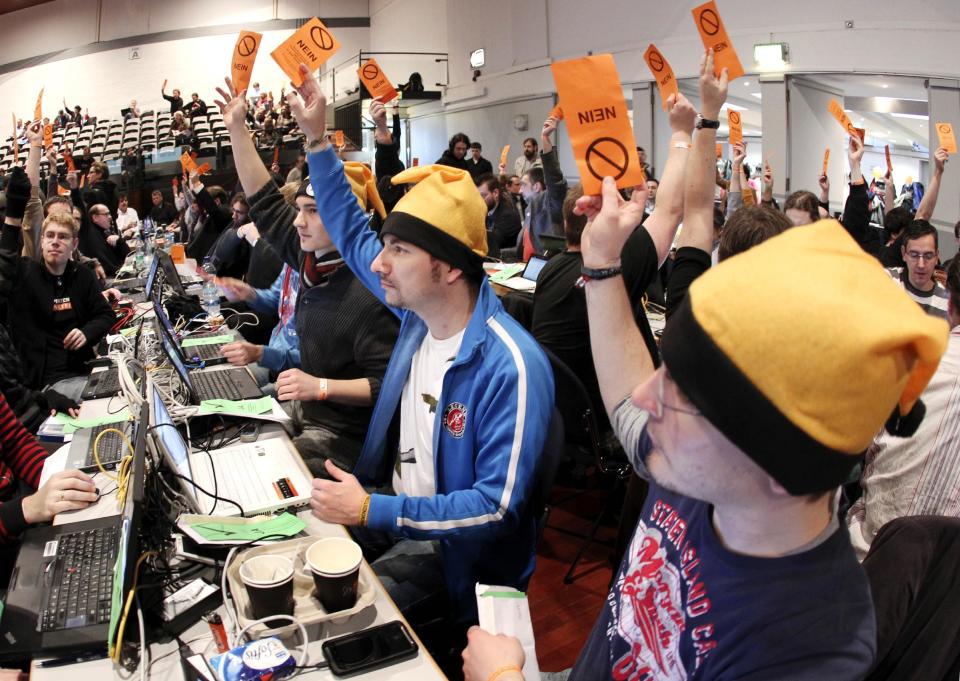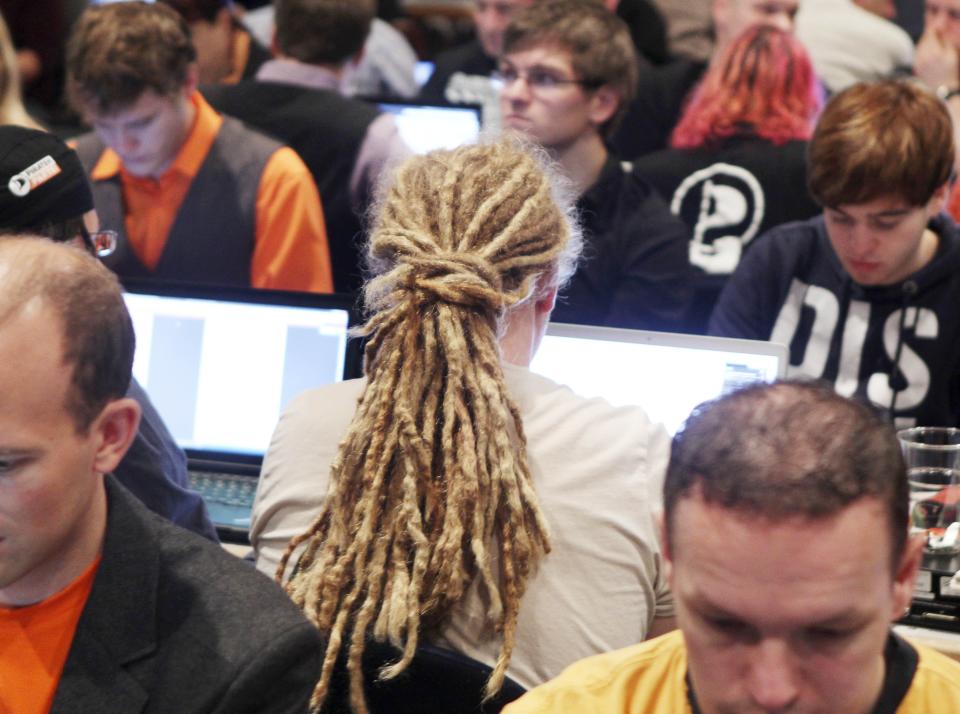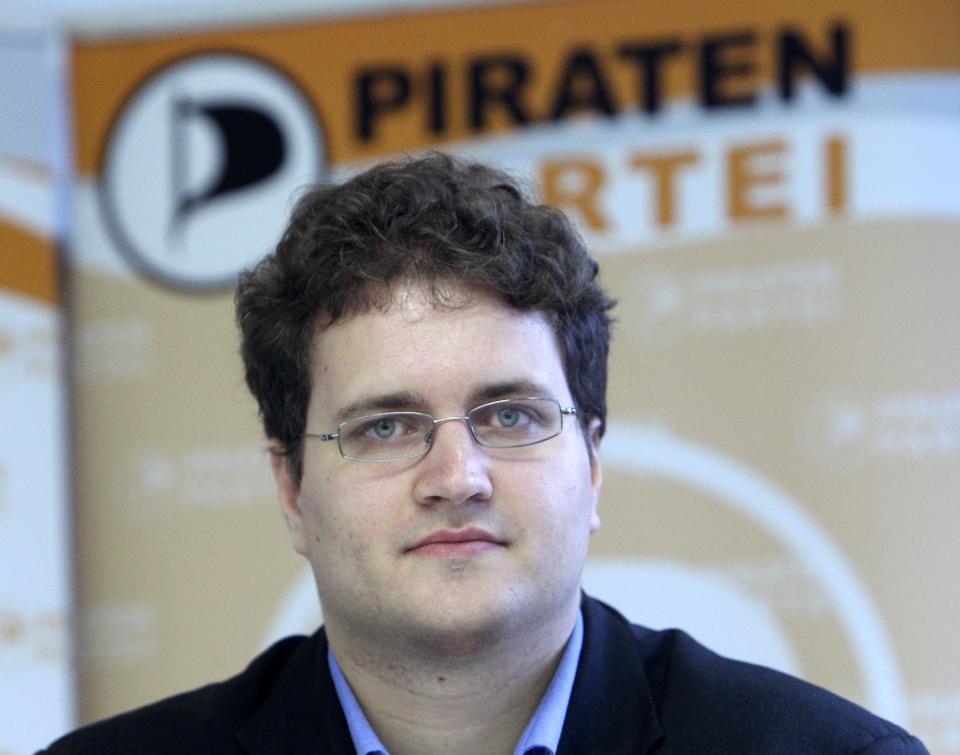Poll: Germany's upstart Pirates on a roll
BERLIN (AP) — Support for Germany's upstart Pirate Party has surged to a record 12 percent after a recent state election success, according to a poll published Tuesday that underlined its arrival as a political force ahead of national elections next year.
The Pirates, whose platform embraces near-total transparency and Internet freedom, first won seats in a state legislature in Berlin last September. They repeated their success March 25 in Saarland, in western Germany.
German politicians are looking toward national elections expected in September 2013 and eyeing the new competition nervously. Despite lacking well-known figures and policies on many issues, the Pirates are rising in national polls.
"The Pirates are a no-issue party — they represent a principle more than substance," Peter Altmaier, the chief parliamentary whip of Chancellor Angela Merkel's conservative Christian Democrats, said in an interview Tuesday with Germany's WAZ Group newspapers.
They are "the counterpoint to the established parties," he added. "The actual substance is in an embryonic phase — perhaps their success lies in the fact they hold back on many questions."
Parties need 5 percent of the vote to win parliamentary seats in German elections. Founded in 2006, the Pirates won 2 percent in Germany's 2009 national election.
In Berlin last year, they won 8.9 percent; in Saarland, 7.4 percent. Tuesday's Forsa agency poll for Stern magazine, conducted in the five days after the Saarland vote, showed a five-point surge over the previous week. Other recent surveys put them at up to 9 percent.
They appear to be winning votes from all parties, but also from disillusioned people who didn't previously vote — despite a lack of policies on issues such as the eurozone debt crisis.
"We openly admit it, if we have gaps in our knowledge," party chairman Sebastian Nerz told ARD television on Sunday. That doesn't mean that the party can't learn or won't thrash out positions, "it just shows that we put honesty in the foreground," Nerz added.
"And on issues like the euro crisis, I think it would have been better for the acceptance of policies if other parties also had simply said: 'Sorry, we don't have yet have a solution. We're working on it.'"
Two more state elections in May — including one in North Rhine-Westphalia, Germany's most populous state — offer the Pirates further chances to test their strength.
How they might perform in the national election remains to be seen. Altmaier said the sometimes chaotic Pirates' presence "makes stable majorities difficult," but that they're not a plausible governing partner.
Tuesday's poll of 2,503 people put support for Merkel's conservatives at 35 percent and for their struggling coalition partners, pro-market the Free Democrats, at 3 percent.
It put the main opposition Social Democrats at 25 percent and their traditional partners, the Greens, at 13 percent — meaning that neither traditional center-right nor center-left coalitions would have a majority. The hard-left Left Party had 9 percent support.
The poll gave a margin of error of plus or minus 2.5 points.




